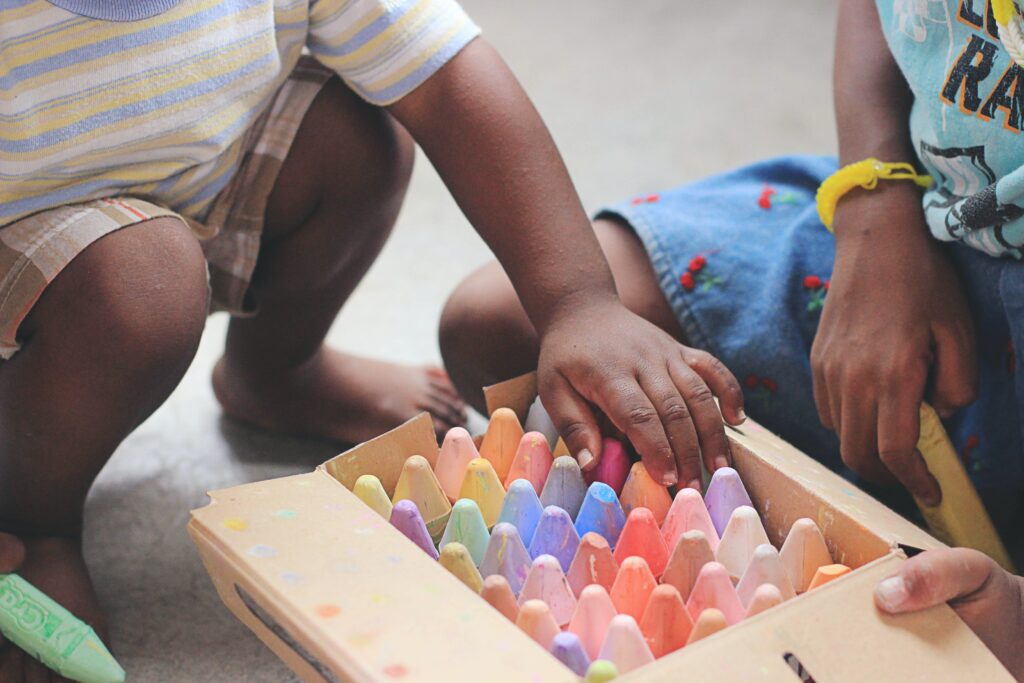"What has been will be again, what has been done will be done again; there is nothing new under the sun." Ecclesiastes 1:9
We had lived in Poland for several years, and as time went on, the brick wall around our water well crumbled. I needed to replace it, and I was up for the task.
I’ve always enjoyed working with my hands, but in church on Sunday morning, our pastor announced that two Moldovan brothers were looking for work to support their families back home. I felt led by God to ask them to help me with the wall.
They arrived at the house on Monday morning. We soon developed our own language, a new hybrid Polish/Russian/Moldovan language, and we were soon getting along famously. They were good workers too. In just two days they had torn down the old brick and built the forms for a new poured concrete wall.
At the end of the day on Tuesday, they told me how much sand, gravel, and cement they would need to mix by hand and then use to fill the forms. It was a significant amount of money, but you do what you gotta do. I purchased the supplies, and the next day the brothers mixed the concrete and poured the walls. They even had some left over.
On Thursday morning two neighbors from across the street arrived at our front gate. Clearly, something was wrong. Rather than explaining anything, they simply asked me to walk with them back to their respective houses.
There, they showed me their flower beds. I was amazed to see that the gardens’ borders were all gone. Why would someone steal all the rock borders at both houses? I wondered.
I asked my neighbors if they knew what had happened to their rock borders. They assured me that they knew exactly what had happened and exactly where the rocks were now. Their rocks were cemented into my well wall.
Apparently, in an effort to save me money, my Moldovan buddies scoured the neighborhood, found some rocks, mixed them in with the cement, sand, and gravel, and then poured the wall. My neighbors’ flower-bed borders were cemented into my wall. Oops!
The Differing Priorities of God's Kingdom

After assuring my neighbors that I would replace each and every border rock, I gathered the Moldovan team for a brief meeting and explained the problem. I understood that they were trying to help me save money, but in doing so, they had created a problem with my neighbors.
So, the three of us drove off together and spent the morning doing flower-bed rock border search and recovery. Amends were made and the situation, resolved.
And maybe a lesson learned? Being from economically depressed Moldova, my workers made saving money a priority. Being a foreigner living in a Polish neighborhood, I made goodwill a priority. Thankfully, for years the Flower-Bed Border Scandal prompted laughter on our street.
The Moldovans’ priorities were not the same as mine. They thought they were doing something that would please me. They didn’t think that I might have—that I did have—different priorities.
Saving money is a good idea, but not at the cost of relationships with my neighbors. My team and I were operating according to different priorities. And in the New Testament, we often see Jesus and His disciples operating according to different priorities.
In fact, Jesus Himself often precipitated these critical clarifying moments, sometimes quite dramatically. Jesus’ goal was always to help the disciples see things differently, consider a new perspective, view life differently, and think about priorities.
One such example is found in Matthew 19:13-15, a passage beloved by all children’s workers:
"People brought little children to Jesus for him to place his hands on them and pray for them. But the disciples rebuked them. Jesus said, "Let the little children come to me, and do not hinder them, for the kingdom of heaven belongs to such as these." When he had placed his hands on them, he went on from there."
Matthew included this little vignette as—I believe—part of his ongoing effort to describe the kingdom of God. And of course, the priorities, values, and vision of God’s kingdom were different from the priorities, values, and vision of the surrounding Roman world. It also becomes apparent that Jesus’ priorities were different from His own disciples’.
The priorities of the disciples were actually more aligned with the priorities of the world. That said, in these three verses, Matthew sought to help the reader understand another unique feature of God’s kingdom. Before we close in on that kingdom feature, let’s first survey the people involved, and then we’ll draw our conclusions.
In this passage we find four separate groups of people as well as Jesus Himself. We will look at each of these groups in separate Five Smooth Stones blogs so follow along each week. This week with start with the group at the center of attention; the children!
The Greek word παιδία is the word for very small children. In fact, an alternate translation might be either infant, baby, or toddler. The Greek communicates that these were the smallest of children. People took them to Jesus so He would lay His hands on them and bless them.
Today, according to the World Bank database, about 27% of the world’s population is under the age of 15. This means that one in four people on the planet are children. They comprise a significant portion of the population. In the magnificent country of India live 366 million children, outnumbering the entire population of the United States.
In some East African countries like Uganda, children are more than half the total population. Children were present in Jesus’ day, and of course they are very much present today.
In fact, in my travels I have seen that almost every church body, no matter how small, has children in their midst. In the very few cases when that wasn’t the case, that church was dying. Yet even in these dying churches children live in the surrounding communities. In some cases, vast numbers.
These children, just like first-century children, need to be brought near Jesus and blessed by Him. These children need to experience the love of Jesus Christ. Millions of children are living in poverty, in spiritual darkness, and on the margins of society. They don’t know that Jesus loves them and offers them a new life—a life of love, forgiveness, grace, and acceptance into His family.
These children are not only in our churches; they’re on playgrounds, streets, and communities around the world.
There Are Children Ready to Give Themselves to Christ

Some years ago, I traveled to Chile with my good friend Rick Fortier. Born in Chile, Rick had moved to the United States as a teenager.
His great love for Latin America has never faded. He has since developed businesses in Chile and across Latin America. Rick has also been instrumental in helping develop EGM’s ministry in Argentina, Mexico, Peru, and of course the mother country, Chile.
Rick and I have traveled thousands of miles together, and he is my trusted English/Spanish translator. In fact, he has translated for me so many times, he sometimes knows exactly what I’m going to say next. In those cases, he can translate ahead of me.
(It’s super awesome to be sharing a humorous anecdote and have people start laughing before you finish because the translator is ahead of you 😊!)
Rick has given thousands of hours to EGM, funded much of my travel, and donated hundreds of hours of his time translating for me. Each year he jokingly doubles the rate he charges me for his translation services!
One time when we were together in Chile, Rick was standing next to me, translating for a group of about 500 children, ages 9 to 12.
I always give Rick my talks ahead of time, but this time I felt the Lord had led me to change my entire presentation, and Rick showed amazing flexibility. Pastor Roberto Manriquez, who was leading the EGM work in Chile, had asked me to share a gospel message at a school assembly, so there we were.
“Good morning! Would you please stand up and hold your chair in front of you?” I said to the 500 students. As they stood holding their chairs, I introduced myself—thoroughly—and spoke about my lovely wife and great kids—in some detail—and then rambled on about whatever came to mind until I could see that the chairs were getting heavy.
I heard a faint moan. Then another. Soon I heard a group moan, and at that I said, “You can put down your chairs and take a seat now.” The response was a group sigh of relief!
“I want to tell you about someone in the Bible who felt that same kind of relief when he was able to put down something that had gotten very, very heavy. He had made a bad decision, and the longer he carried the memory of that bad decision, the heavier it got. That’s the nature of sin: the longer we carry it, the heavier it gets. It gets heavier and heavier until someone takes it away.”
I had set up a lesson about forgiveness, specifically the forgiveness Jesus showed Peter in John 21. In that beautiful chapter, Jesus asked Peter three times, “Do you love Me?” Clearly, Jesus was showing Peter—who had denied knowing Jesus three times—that he had been forgiven and restored.
The message that morning was, no matter what we have done, Jesus is ready to forgive us, relieve us of the growing burden of sin, and give us a new life.
As I finished speaking, I shared the basic elements of the message of salvation: God’s plan for us, our sin and separation from Him, Jesus’ death and resurrection, and both the forgiveness of sins and the new life we can have when we put our trust in Him.
Then I invited anyone who wanted to confess Christ as Lord and Savior to come to the front where Pastor Roberto would counsel and pray with them. There was no response…. It seemed like I was standing there with Rick forever.
Then, a girl about ten years old stood up… all by herself. She sidled down the row of students to the center aisle and then… all by herself walked down to the front. When she got there, she walked right up the steps and stopped directly in front of me… all by herself in front of 500 other children.
Pastor Roberto stepped in and spoke with her for some time while we waited. After that counseling, he led her in the sinner’s prayer, and right there she committed her life to Christ. Then she walked back and maneuvered back down the row to her seat… all by herself. I will never forget that girl.
Other children around the world are like her: ready to give themselves to Christ. They are on the playgrounds, soccer pitches, schoolyards, and streets of our cities. Many of them are just across the street from your church.
They are brown-haired and blond, tall and short, poor and rich, classroom educated and street smart, from two-parent families and from single-parent homes, outgoing and introverted, happy and sad, and all in need of Jesus Christ. Around this globe are 2.2 billion children, and the vast majority of them need to be brought to Christ for Him to bless and love.
Which leads to the second group... next week!
